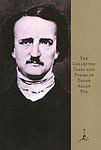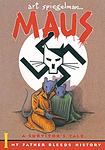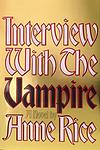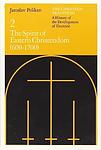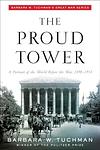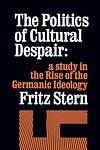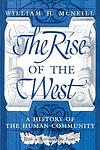The Greatest American "Europe" Books of All Time
Click to learn how this list is calculated.
This list represents a comprehensive and trusted collection of the greatest books. Developed through a specialized algorithm, it brings together 300 'best of' book lists to form a definitive guide to the world's most acclaimed books. For those interested in how these books are chosen, additional details can be found on the rankings page.
Genres
The "Europe" category for books encompasses a wide range of literature that explores the history, culture, politics, and geography of the continent. It includes works of fiction, non-fiction, and memoirs that delve into the diverse and complex societies of Europe, from the ancient civilizations of Greece and Rome to the modern-day European Union. This category also covers books that examine the impact of European colonialism and imperialism on other parts of the world, as well as the continent's role in global affairs. Overall, the "Europe" category offers readers a rich and varied selection of books that illuminate the many facets of this fascinating and influential region.
Countries
Date Range
Reading Statistics
Click the button below to see how many of these books you've read!
Download
If you're interested in downloading this list as a CSV file for use in a spreadsheet application, you can easily do so by clicking the button below. Please note that to ensure a manageable file size and faster download, the CSV will include details for only the first 500 books.
Download-
1. The Portrait of a Lady by Henry James
This classic novel explores the life of a young, independent American woman who inherits a large amount of money and moves to Europe, where she falls into a manipulative and oppressive marriage. The story delves into themes of personal freedom, responsibility, and betrayal, as the protagonist navigates the complexities of high society, love, and the consequences of her choices.
-
2. The Complete Tales and Poems of Edgar Allan Poe by Edgar Allan Poe
This collection brings together all of the author's most famous works, including poems, short stories, and novellas. Known for his macabre and gothic storytelling, the author's works are filled with themes of death, love lost, and human frailty. Notable inclusions are the haunting poem "The Raven," the chilling stories "The Tell-Tale Heart" and "The Fall of the House of Usher," and his only complete novel, "The Narrative of Arthur Gordon Pym."
-
3. Gravity's Rainbow by Thomas Pynchon
Set during the end of World War II, the novel follows Tyrone Slothrop, a lieutenant in the U.S. Army, as he tries to uncover the truth behind a mysterious device, the "Schwarzgerät", that the Germans are using in their V-2 rockets. The narrative is complex and multi-layered, filled with a vast array of characters and subplots, all connected by various themes such as paranoia, technology, and the destructive nature of war. The book is known for its encyclopedic nature and its challenging, postmodernist style.
-
4. Speak, Memory by Vladimir Nabokov
"Speak, Memory" is an autobiographical memoir that explores the author's life from his birth in 1899 to his emigration to the United States in 1940. The narrative details his privileged childhood in Russia, his experiences during the Russian Revolution, his time in Europe as an émigré, and his career as a writer and scholar. The book is noted for its intricate descriptions, its exploration of the nature of memory, and its intricate linguistic play.
-
5. Maus by Art Spiegelman
This graphic novel tells the story of a Holocaust survivor, as narrated by his son. The unique use of animals to represent different nationalities and ethnic groups adds a distinctive layer to the narrative. The protagonist's father recounts his experiences as a Polish Jew during World War II, offering a poignant depiction of the horrors of the Holocaust. The narrative also explores the complex father-son relationship, revealing the impact of such traumatic historical events on subsequent generations.
-
6. The Education of Henry Adams by Henry Adams
"The Education of Henry Adams" is an autobiographical account that explores the changes in society and politics during the 19th and 20th century from the perspective of an individual who is both a product and critic of that era. The narrative is structured around the author's self-perceived failure to understand or adapt to these changes, despite his privileged education and social status. The book is a reflection on the author's life, his attempts to make sense of the world around him, and his struggle to reconcile his traditional upbringing with the rapid advancements of the modern world.
-
7. Interview with the Vampire by Anne Rice
The novel is a dark and atmospheric tale of a centuries-old vampire, Louis, who shares his life story with a young reporter. He recounts his transformation into a vampire by the charismatic and ruthless Lestat, their complex relationship, and their encounters with other supernatural beings. The narrative explores themes of immortality, loss, identity, and the human desire for love and companionship. The book is known for its rich detail and its philosophical and historical depth.
-
8. Angela's Ashes: A Memoir by Frank McCourt
This memoir is a profound and heart-wrenching account of the author's impoverished childhood in Limerick, Ireland, during the 1930s and 1940s. The story is filled with tales of survival in the face of extreme poverty, an alcoholic father, a struggling mother, and the deaths of three siblings. Despite the harsh circumstances, the narrative is infused with a sense of humor and hope, demonstrating the resilience of the human spirit.
-
9. A Distant Mirror by Barbara Tuchman
"A Distant Mirror" is a historical narrative that vividly depicts the calamitous 14th century, a time marked by the Black Death, religious strife, and the Hundred Years War. The book follows the life of a French nobleman, offering a detailed account of his experiences and the broader social, political, and cultural transformations of the era. The author draws parallels between the 14th century and the 20th century, highlighting recurrent patterns in history such as warfare, pandemics, and societal unrest.
-
10. The Clan of the Cave Bear by Jean M. Auel
This novel tells the story of a young girl named Ayla who, after an earthquake kills her family, is adopted by a tribe of Neanderthals known as the Clan. Ayla struggles to fit in with the Clan due to her physical differences and advanced cognitive abilities. Despite these challenges, she learns their customs and ways of life, and even becomes the apprentice of the Clan's medicine woman. The story explores themes of survival, acceptance, and the clash between cultures and species.
-
11. The Great War and Modern Memory by Paul Fussell
"The Great War and Modern Memory" is a critical analysis of the impact of World War I on the English society and culture. The author explores the war's influence on literature, language, and symbolism, arguing that the horrific experiences of the war drastically altered public perception and understanding of conflict, honor, and heroism. The book combines literary criticism, history, and social commentary to provide a comprehensive examination of the war's lasting effects on the collective memory of the English-speaking world.
-
12. Guns, Germs, and Steel by Jared Diamond
The book is a comprehensive exploration of the different trajectories of human societies throughout history. It argues that environmental factors, rather than racial or cultural differences, are the primary reason why some societies developed more advanced technology and political systems. The author uses a multidisciplinary approach, drawing from fields such as geography, evolutionary biology, and linguistics, to support his thesis. The book covers a wide range of topics, including the domestication of plants and animals, the invention of writing, and the spread of diseases.
-
13. Daisy Miller by Henry James
"Daisy Miller" is a novella that explores the social differences between American and European society in the late 19th century. The story follows a young, affluent American woman named Daisy Miller, who defies societal norms while traveling in Europe. Her flirtatious behavior and disregard for European customs create a scandal among the upper-class expatriate community, particularly catching the attention of a young American man who is both attracted to and repulsed by her nonconformity. Ultimately, Daisy's refusal to conform to societal expectations leads to her downfall.
-
14. The Rise and Fall of the Third Reich by William L. Shirer
This book provides a comprehensive history of Adolf Hitler's Third Reich, from its inception to its downfall during World War II. The author, an American journalist who reported from Germany and Austria during the Nazi era, uses firsthand accounts, interviews, and Nazi documents to detail Hitler's rise to power, the mechanisms of the Nazi state, and the events leading to and during World War II, including the Holocaust. The book concludes with an analysis of why the Third Reich fell and the aftermath of its collapse.
-
15. Flowers in the Attic by V. C. Andrews
The novel focuses on four siblings who, after the tragic death of their father, are locked away in the attic of their cruel grandmother's mansion as their mother tries to inherit the family fortune. The children endure years of abuse and neglect, and as their mother's visits become less frequent, they must rely on each other for survival. Over time, they form a deeply complex and troubling relationship, leading to a shocking and devastating climax.
-
16. Doomsday Book by Connie Willis
In this science fiction novel, a young historian undertakes a time-travel journey to the 14th century for academic research, only to find herself stranded amidst the onset of the Black Death. As she navigates the challenges of medieval England, her colleagues in the 21st century grapple with a deadly influenza pandemic, complicating efforts to retrieve her. The narrative weaves between the past and the present, exploring themes of human resilience, the universality of suffering across time, and the ethical implications of time travel, all while the historian and her contemporaries confront mortality, history, and their own personal crises.
-
17. The Christian Tradition by Jaroslav Pelikan
"The Christian Tradition" is a comprehensive exploration of the historical development of Christian doctrine from the first century to the present day. It provides an in-depth analysis of the key figures, events, and ideas that have shaped Christian thought, emphasizing the diversity and richness of the tradition. The author meticulously examines the evolution of Christian beliefs, the controversies and conflicts that have arisen over the centuries, and the ways in which these beliefs have been interpreted and reinterpreted in different historical and cultural contexts.
-
18. The Proud Tower by Barbara Tuchman
This historical work delves into the tumultuous period preceding World War I, capturing the social, political, and cultural landscape of the world from the 1890s through the early 20th century. The narrative weaves through various countries and influential figures, examining the contrasts between the wealth of the elite and the struggles of the working class, the rise of anarchism, and the complexities of pre-war diplomacy. It paints a vivid picture of an era marked by both grandeur and the simmering tensions that would eventually lead to one of the most devastating conflicts in human history.
-
19. The Classical Style by Charles Rosen
This book is an authoritative analysis of the major musical compositions and stylistic innovations during the Classical period, focusing specifically on the works of Haydn, Mozart, and Beethoven. The author, a renowned pianist and musicologist, delves into the origins and development of the classical style, examining how these composers transformed the musical landscape with their approaches to form, harmony, and aesthetic. He offers readers a deep understanding of the period's music through detailed discussions of sonata form, the use of motifs, and the balance between melody and accompaniment, providing insights that connect the technical aspects of music theory with the expressive power of the classical repertoire.
-
20. The Politics Of Cultural Despair by Fritz Stern
This book is a critical historical analysis that delves into the intellectual roots of cultural pessimism in Germany leading up to the rise of National Socialism. It examines the works and influence of three prominent conservative critics from the late 19th and early 20th centuries, who lamented the perceived decline of traditional values and the erosion of social cohesion in the face of modernity and liberalism. The author argues that their reactionary critique of contemporary culture and their yearning for a return to an idealized past laid the groundwork for the ideological underpinnings of fascism, demonstrating how cultural despair can be manipulated into political extremism.
-
21. The Rise of the West by William H. McNeill
"The Rise of the West" is a comprehensive historical narrative that explores the development of Western civilization from the early stages of human history to the 20th century. The book provides a detailed analysis of various civilizations around the world, their interactions, and the resulting cultural exchanges that have shaped the modern world. It also discusses the significant factors, such as technological advancements, religious transformations, and political changes, that have contributed to the West's ascendancy.
-
22. A Field Guide to the Birds by Roger Tory Peterson
This book is a comprehensive guide to bird species, providing detailed information about various types of birds, their habitats, behaviors, and physical characteristics. It includes illustrations and descriptions to help readers identify different bird species, making it a valuable resource for birdwatchers, ornithologists, and nature enthusiasts. The guide also offers tips on birdwatching and advice on how to attract different bird species to your backyard.
-
23. Say Nothing by Patrick Radden Keefe
This book is a gripping exploration of the Troubles in Northern Ireland, focusing on the disappearance of Jean McConville, a mother of ten who was abducted by the Irish Republican Army (IRA) in 1972. The narrative weaves together the stories of several key figures in the IRA, including Dolours Price, an IRA member who became disillusioned with the organization, and Brendan Hughes, a former IRA commander. The book delves deep into the political and personal complexities of the conflict, revealing the long-lasting trauma and moral ambiguities that continue to haunt those involved.
-
24. The Cunning Of History by Richard L. Rubenstein
This book delves into the dark and complex relationship between the Holocaust and the broader course of Western civilization, arguing that the mass extermination of Jews during World War II was not an aberration but a reflection of the destructive tendencies inherent in modern society. The author explores how bureaucratic efficiency, technological advancement, and the pursuit of rational goals led to the industrial-scale atrocities of the Holocaust. By examining the ethical and moral implications of these events, the work challenges readers to reconsider the costs of progress and the nature of evil within the context of history's relentless march forward.
-
25. The Moon is Down by John Steinbeck
The book tells the story of a small coastal town in Northern Europe that is occupied by an invading, unnamed army. The town's mayor, a central figure in the story, attempts to maintain order and dignity in the face of the occupation, while the townspeople begin to form a resistance against the invaders. The narrative explores the tensions and moral complexities of war, occupation, and resistance, as well as the human capacity for dignity and bravery under oppressive circumstances.
Reading Statistics
Click the button below to see how many of these books you've read!
Download
If you're interested in downloading this list as a CSV file for use in a spreadsheet application, you can easily do so by clicking the button below. Please note that to ensure a manageable file size and faster download, the CSV will include details for only the first 500 books.
Download
